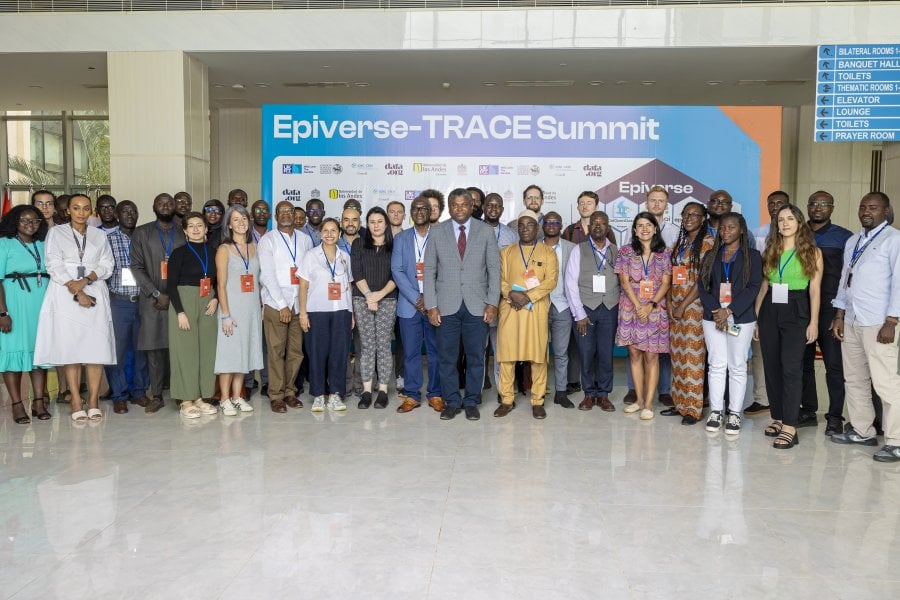
Group picture of the Epiverse Summit
Held from 2nd to 6th December 2024 at the Sir Dawda Kairaba Jawara International Conference Centre and the MRCG at LSHTM campus in Fajara, the annual flagship event brought together 44 participants from The Gambia, rest of Africa, South and North America, as well as Europe.
During the welcome ceremony, Dr Davis Nwakanma, Chief Operations Officer at MRCG at LSHTM highlighted the Unit’s commitment to advancing data science through its research. "Years ago, we had the foresight to establish a Data Science Cluster, a decision that has since proven invaluable. Today, this summit and the ongoing project reflects that vision” he said.
According to Dr. Ahmadou Lamin Samateh, the Honourable Minister of Health of The Gambia, "this summit on developing data and analytics tools for pandemic preparedness is timely and essential.” He added that the memories of the COVID-19 pandemic are still fresh, highlighting the need to be prepared for future pandemics with the right tools and processes. This he said, is why Epiverse’s work is vital.
“We are proud that The Gambia, through MRCG at LSHTM, has been chosen as one of the three hubs for Phase 2 of Epiverse. Ultimately, the success of our health system’s digital transformation hinges on quality data, and this summit is a critical space for collaboration, strategy, and innovation in health policy development" said Dr. Samateh.
Speaking on the urgent need for action to be taken in addressing the global health challenges faced by Africa, Uyi Stewart, Chief Data and Technology Officer at Data.org, highlighted that, "Nearly a quarter of the world’s disease burden lies on this continent, but the workforce needed to tackle this is severely lacking. According to a recent WHO study, we have only 1.55 health workers per 1,000 people, far below the expected 4.55. This is where summits like this are crucial, focusing on building a sustainable and inclusive analytics ecosystem for epidemic preparedness and broader public health.
Bubacarr Bah, Head of Data Science at MRCG at LSHTM and the Principal Investigator for the Epiverse-TRACE project, stated that, “The is a global initiative and it is about building open-source data for analysis to transform the way we deliver data science for social good. Our main goal was to change how analytics are used in global infectious disease response, moving from ad-hoc approaches to integrated, generalisable and scalable community-driven software.”
Epiverse is a global collaborative supported by Data.org to develop open-source data analysis resources for transformative public good, by co-creating a trustworthy, open-source software ecosystem to power epidemic preparedness and response, through its partner network of interdisciplinary experts.
If you enjoyed this article and would like to build a career in global health, we offer a range of MSc programmes covering health and data, infectious and tropical diseases, population health, and public health and policy.
Available on campus or online, including flexible study that works around your work and home life, be part of a global community at the UK's no.1 public health university.
